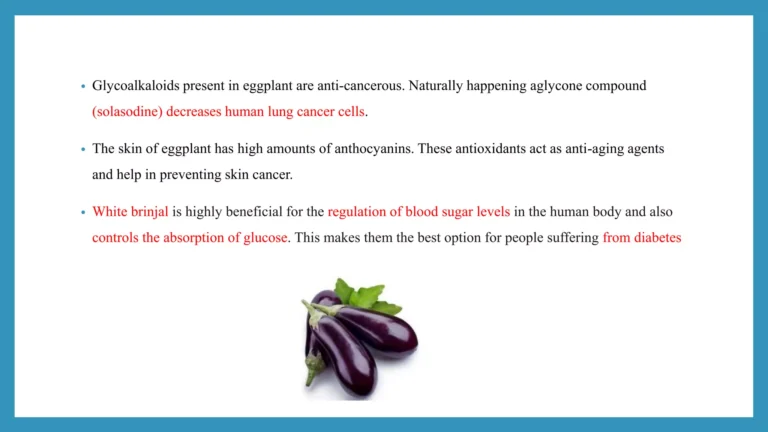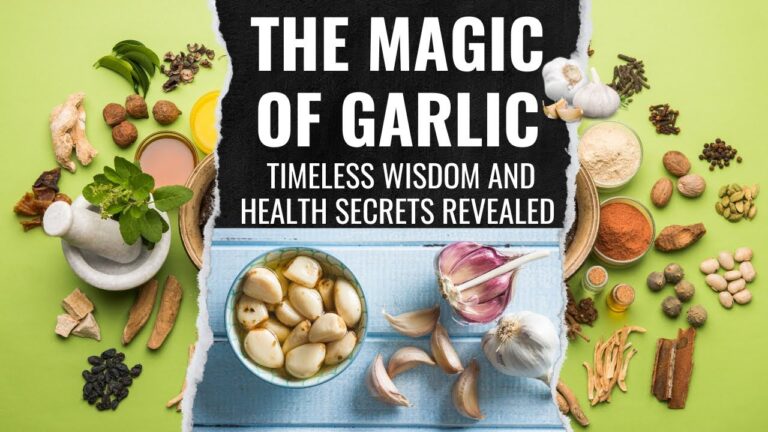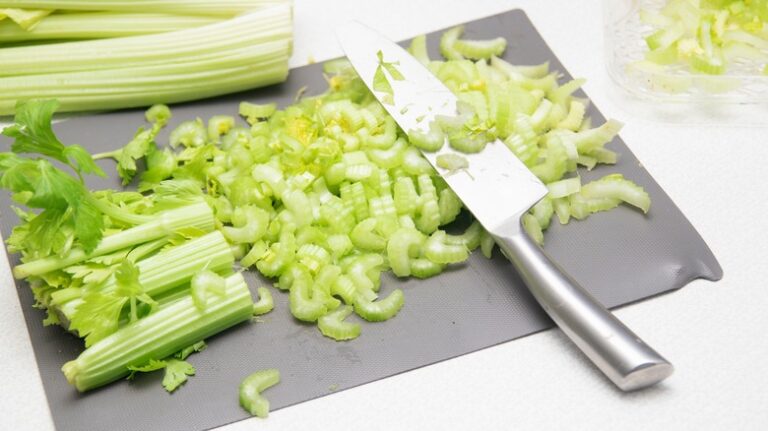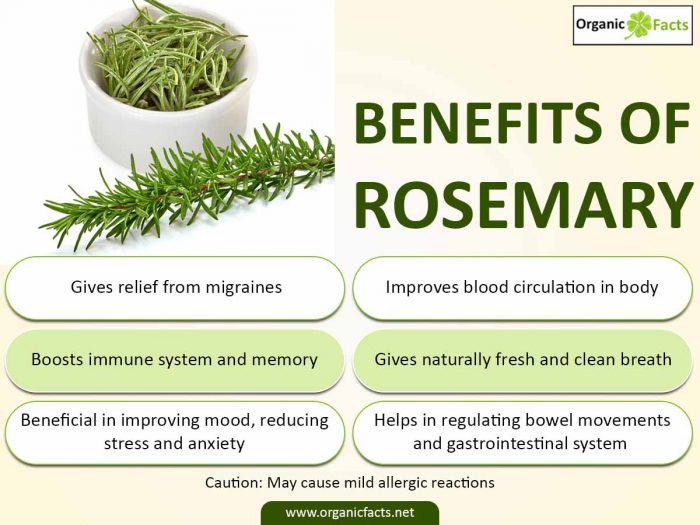The Ancient Sentinel: How Shiitake Mushrooms Forge an Indomitable Immune Fortress
In the hushed depths of ancient forests, where sunlight dappled through canopies of old growth, a silent sentinel has stood for millennia. Not a towering tree nor a elusive beast, but a humble fungus, emerging from the decay of fallen logs – the Shiitake mushroom. Revered in Eastern cultures for its exquisite flavour and profound medicinal properties, this unassuming organism has been whispered about in folklore and prescribed in traditional medicine for centuries. Its story, rich with the earth’s wisdom, now unfurls under the scrutinizing lens of modern science, revealing a potent secret: Shiitake isn’t just a culinary delight; it’s a formidable architect of immunity, capable of strengthening our body’s defenses from within.
This is the tale of Lentinula edodes, a mushroom whose very essence embodies resilience and healing. It’s a story not just of compounds and mechanisms, but of the intricate dance between nature and human well-being, where ancient intuition meets cutting-edge discovery. For the knowledgeable seeker of health, understanding the Shiitake’s power is to unlock a deeper appreciation for the intelligence woven into the natural world, offering a compelling narrative of how we can fortify our inner fortress against the ceaseless siege of pathogens and stressors.
The Shiitake Chronicle: From Forest Floor to Global Phenomenon
The journey of the Shiitake mushroom is as compelling as its benefits. Originating in the mountainous regions of Asia, particularly Japan, China, and Korea, its cultivation dates back over a thousand years. Historical records from the Song Dynasty (960-1279 AD) in China detail its cultivation on oak and other hardwood logs, a practice that required a profound understanding of forest ecology and fungal biology. Early cultivators, perhaps unknowingly, were harnessing the mushroom’s natural lifecycle, providing the ideal substrate for its mycelial network to flourish and eventually fruit.
In Japan, the Shiitake (literally "oak mushroom") became inextricably linked with samurai culture and Buddhist monastic life, prized for its ability to sustain health and enhance the umami flavour of simple meals. It wasn’t merely food; it was a revered ingredient, often presented as a gift to emperors and nobles, symbolizing longevity and vitality. This reverence wasn’t just aesthetic or culinary; it was deeply rooted in observation. Generations noticed that those who regularly consumed Shiitake seemed to possess a more robust constitution, recovering faster from illness and exhibiting greater stamina.
The traditional cultivation method, known as "log cultivation," is a testament to sustainable practices. Hardwood logs are inoculated with Shiitake spores or spawn and left in shaded, humid forest environments. Over several months, or even years, the mycelium colonizes the log, breaking down its cellulose and lignin, until conditions are right for fruiting bodies to emerge. This slow, natural process is believed by many to yield mushrooms with a richer flavour and potentially higher concentrations of beneficial compounds compared to modern, faster substrate cultivation methods, though both produce excellent mushrooms.
Today, Shiitake is a global commodity, enjoyed in cuisines worldwide and increasingly recognized in the health and wellness industry. Its transition from a regional delicacy to a global superfood highlights a growing appreciation for nature’s medicinal pantry, a movement towards integrating ancient wisdom with contemporary scientific validation.
The Immune System: A Sophisticated Inner Citadel
To fully grasp the Shiitake’s immune-boosting prowess, one must first appreciate the complexity and elegance of our own immune system. Far from a simple defense mechanism, it is a highly sophisticated network of cells, tissues, and organs, constantly surveilling, communicating, and adapting. It operates on two principal fronts:
-
Innate Immunity: Our body’s first line of defense, acting rapidly and non-specifically against common threats. This includes physical barriers like skin and mucous membranes, as well as specialized cells such as macrophages, neutrophils, and Natural Killer (NK) cells. These cells act like patrol officers, identifying and neutralizing anything that looks "foreign" or "dangerous" without prior exposure.
-
Adaptive Immunity: A more specialized and refined system that learns and remembers specific pathogens. When innate immunity isn’t enough, adaptive immunity kicks in, deploying T-cells and B-cells. T-cells directly attack infected cells or coordinate other immune responses, while B-cells produce antibodies that tag pathogens for destruction. The beauty of adaptive immunity lies in its memory; once it encounters a pathogen, it’s better prepared to fight it off more swiftly and effectively in subsequent encounters.
The delicate balance within this system is crucial. An underactive immune system leaves us vulnerable to infections and diseases, while an overactive or dysregulated one can lead to chronic inflammation, allergies, and autoimmune conditions where the body mistakenly attacks its own healthy tissues. Maintaining this equilibrium, known as immune homeostasis, is paramount for long-term health.
Crucially, the gut-immune axis plays a pivotal role. Our intestines house trillions of microorganisms, collectively known as the gut microbiome. This vast microbial community interacts intimately with the Gut-Associated Lymphoid Tissue (GALT), which constitutes about 70% of our body’s immune cells. A healthy, diverse microbiome is essential for training and modulating the immune system, influencing everything from our susceptibility to infections to our risk of developing autoimmune diseases.
The Shiitake’s Bioactive Arsenal: A Symphony of Immune Modulators
What gives Shiitake its extraordinary power? It’s not a single magic bullet, but rather a complex symphony of bioactive compounds working in concert. This holistic profile is what sets whole foods like Shiitake apart from isolated pharmaceutical agents.
The undisputed star player in Shiitake’s immune arsenal is Lentinan. This is a beta-glucan, a type of complex polysaccharide (a long chain of sugar molecules). Beta-glucans are naturally occurring polymers found in the cell walls of fungi, yeast, oats, and barley. However, the specific structure of lentinan, a (1→3)-β-D-glucan with (1→6)-β-D-glucopyranoside branches, is particularly effective at stimulating immune responses.
Here’s how Lentinan and other key compounds orchestrate Shiitake’s immune-modulating effects:
-
Lentinan: The Immune System’s Maestro:
- Direct Immune Cell Activation: Lentinan acts as a "Pattern Recognition Receptor Agonist." This means it binds to specific receptors on the surface of immune cells, such as Dectin-1 on macrophages, dendritic cells, and NK cells. When lentinan binds, it signals these cells to become more active and vigilant.
- Macrophage Activation: Macrophages, the "big eaters" of the immune system, are stimulated by lentinan to increase their phagocytic activity (engulfing and destroying pathogens) and to release cytokines.
- Dendritic Cell Maturation: Dendritic cells are crucial "antigen-presenting cells" that bridge innate and adaptive immunity. Lentinan promotes their maturation, enhancing their ability to present antigens to T-cells, thereby initiating a more robust adaptive immune response.
- Natural Killer (NK) Cell Enhancement: NK cells are vital for surveillance against viral infections and early-stage cancer cells. Lentinan significantly boosts NK cell activity, making them more efficient at identifying and destroying compromised cells.
- T-cell and B-cell Modulation: While lentinan primarily acts on innate immune cells, its activation of macrophages and dendritic cells indirectly influences T-cell and B-cell responses, promoting a balanced and effective adaptive immunity.
- Cytokine Production: Lentinan modulates the production of cytokines – the communication molecules of the immune system. It tends to promote the release of beneficial cytokines like interleukins (IL-1β, IL-6, IL-10) and tumour necrosis factor-alpha (TNF-α) in a balanced way, enhancing immune responses without triggering excessive inflammation.
-
Other Polysaccharides: Beyond lentinan, Shiitake contains a spectrum of other polysaccharides and heteropolysaccharides that contribute to its overall immune-modulating effects. These compounds work synergistically, potentially targeting different receptors or pathways to amplify the immune response.
-
Eritadenine: While primarily known for its cholesterol-lowering effects (by inhibiting cholesterol absorption and accelerating its excretion), improved cardiovascular health indirectly supports overall immune function. A body free from chronic metabolic stress is better equipped to mount an effective immune response.
-
Triterpenes: These compounds are recognized for their anti-inflammatory, antioxidant, and potential anti-cancer properties. By reducing systemic inflammation, triterpenes help maintain immune homeostasis, as chronic inflammation can suppress or misdirect immune function.
-
Ergosterol (Vitamin D Precursor): Shiitake, especially when exposed to UV light, is a good source of ergosterol, which converts to Vitamin D2. Vitamin D is not just for bone health; it’s a critical immunomodulator. It influences the function of T-cells, macrophages, and dendritic cells, playing a key role in both innate and adaptive immunity and helping to prevent excessive inflammation.
-
Phenolic Compounds and Antioxidants: Shiitake is rich in various phenolic compounds, flavonoids, and other antioxidants. These compounds combat oxidative stress, which can damage cells and impair immune function. By neutralizing free radicals, they protect immune cells and tissues, allowing the immune system to operate optimally.
-
Vitamins and Minerals: Shiitake is a nutritional powerhouse, providing B vitamins (B2, B3, B5, B6, folate), copper, selenium, and zinc. Each of these micronutrients plays a direct and vital role in immune function:
- B Vitamins: Essential for energy metabolism in rapidly dividing immune cells.
- Copper: Crucial for the development and maintenance of immune cells.
- Selenium: A potent antioxidant that supports the production of antibodies and the activity of NK cells.
- Zinc: Indispensable for the development and function of immune cells, including T-cells and B-cells.
This intricate blend of compounds ensures that Shiitake doesn’t just "boost" immunity in a simplistic sense, but rather "modulates" it, guiding the system towards balance, responsiveness, and resilience.
Scientific Validation: Bridging Ancient Wisdom with Modern Proof
While traditional knowledge has long celebrated Shiitake’s health benefits, modern science has begun to systematically unpack and validate these claims. Research, ranging from in vitro studies to human clinical trials, consistently points to Shiitake’s profound impact on immune health.
Early in vitro (test tube) and animal studies laid the groundwork, demonstrating how Shiitake extracts, particularly lentinan, could activate various immune cells. Researchers observed increased phagocytic activity of macrophages, enhanced NK cell cytotoxicity against tumour cells, and modulated cytokine production. These studies provided the mechanistic insights into how Shiitake compounds interact with the immune system at a cellular level.
The leap to human clinical trials has been particularly exciting. One notable study, conducted at the University of Florida, investigated the effects of daily Shiitake consumption on immune function in healthy adults. Participants consumed 5 or 10 grams of dried Shiitake mushrooms daily for four weeks. The results were striking:
- Enhanced Gamma Delta T-cell Proliferation: These T-cells are part of the innate immune system and act as a rapid first response to pathogens, especially viruses and bacteria. The study showed a significant increase in their proliferation and activation.
- Improved NK Cell Activity: Participants exhibited enhanced NK cell cytotoxicity, meaning their NK cells were better equipped to identify and destroy infected or abnormal cells.
- Reduced Inflammation: The study also found a reduction in serum C-reactive protein (CRP), a key marker of inflammation, indicating an anti-inflammatory effect.
- Positive Gut Microbiome Changes: While not the primary focus, the study also hinted at beneficial changes in gut microbiota composition, reinforcing the gut-immune connection.
These findings are significant because they demonstrate that regular, moderate consumption of whole Shiitake mushrooms can positively influence multiple aspects of human immunity, leading to a more robust and balanced immune response. It’s not just about stimulating one pathway; it’s about optimizing the entire immune network.
Further research has explored Shiitake’s potential in specific contexts, such as its adjunctive use in cancer therapy, particularly in Japan. Lentinan, as a purified extract, has been approved as an immunotherapeutic agent in Japan for several decades, often used in conjunction with conventional chemotherapy to improve patient outcomes, enhance quality of life, and reduce side effects by bolstering the body’s natural defenses. While this specific application typically involves high-dose, purified lentinan administered clinically, it underscores the profound immune-modulating capacity inherent in the whole mushroom.
Studies have also indicated Shiitake’s direct antiviral and antibacterial properties. Extracts have shown inhibitory effects against various viruses, including influenza, and bacteria, suggesting that its immune-boosting role might be complemented by direct antimicrobial actions. This multi-faceted approach to defense makes Shiitake a truly comprehensive immune ally.
Integrating Shiitake: A Culinary and Medicinal Practice
For the knowledgeable individual seeking to leverage Shiitake’s immune benefits, integration into a daily routine is both delicious and practical. The beauty of Shiitake lies in its versatility.
Culinary Delights:
Shiitake mushrooms are renowned for their rich, earthy, umami flavour, which deepens when cooked. They can be enjoyed fresh or dried. Dried Shiitake, after rehydration, often have an even more concentrated flavour and a meatier texture.
- Soups and Stews: A cornerstone in Asian cuisine, Shiitake adds depth and body to broths, miso soup, ramen, and various stews.
- Stir-fries: Their firm texture holds up well to high-heat cooking, making them excellent in stir-fries with vegetables, tofu, or meat.
- Roasting/Sautéing: Simply roasted with olive oil and herbs, or sautéed with garlic, they make a fantastic side dish.
- Sauces and Gravies: Finely chopped or blended, they can enrich sauces, adding umami and nutritional punch.
- Vegetarian/Vegan Dishes: Their meaty texture makes them a superb substitute for meat in many dishes.
Forms of Consumption:
- Whole Mushrooms (Fresh or Dried): The most traditional and often preferred method. Regular consumption of whole mushrooms ensures you receive the full spectrum of bioactive compounds in their natural synergy.
- Powdered Shiitake: Dried Shiitake can be ground into a fine powder, easily added to smoothies, soups, sauces, or even coffee/tea for a subtle umami boost and nutritional infusion.
- Extracts and Supplements: For those seeking a more concentrated dose or convenience, standardized Shiitake extracts are available. Look for products that specify the percentage of beta-glucans, particularly lentinan, and are sourced from reputable manufacturers. Extracts often come in capsule or liquid form.
Dosage and Safety:
For general immune support, daily culinary consumption (e.g., 5-10 grams of dried equivalent) appears beneficial based on human studies. As a supplement, follow the manufacturer’s recommendations. Shiitake is generally considered safe for most people. However, some individuals might experience mild digestive upset. "Shiitake dermatitis," a rare skin rash, can occur in sensitive individuals after consuming raw or undercooked Shiitake. Always cook Shiitake thoroughly to prevent this. As with any dietary change or supplement, individuals with pre-existing health conditions or those on medication should consult a healthcare professional.
Beyond Immunity: A Holistic Health Ally
While immunity is Shiitake’s crowning glory, its diverse array of bioactive compounds contributes to several other significant health benefits, reinforcing its role as a holistic health ally:
- Cardiovascular Health: As mentioned, eritadenine helps lower cholesterol levels. Additionally, the fiber content and antioxidant properties support overall heart health by reducing oxidative stress and inflammation in blood vessels.
- Antioxidant Powerhouse: The rich supply of phenolic compounds, flavonoids, and selenium in Shiitake acts as a formidable antioxidant defense, protecting cells from damage caused by free radicals and contributing to anti-aging processes.
- Bone Health: Beyond Vitamin D, Shiitake contains minerals like copper and zinc, which are vital for bone density and strength.
- Gut Health: The complex carbohydrates and dietary fiber in Shiitake act as prebiotics, nourishing beneficial gut bacteria. A healthy microbiome, in turn, supports not only immunity but also digestion, nutrient absorption, and even mood.
- Potential Anti-Cancer Effects: Building on its immune-modulating capabilities, Shiitake’s compounds, particularly lentinan, have shown direct anti-tumour activity in some preclinical studies, inhibiting cancer cell growth and promoting apoptosis (programmed cell death). This is often linked to its ability to enhance the body’s natural cancer surveillance mechanisms.
These multifaceted benefits underscore that integrating Shiitake into one’s diet is an investment in overall well-being, where improved immunity is just one facet of a healthier, more resilient body.
The Future of Fungal Medicine: A Resurgent Paradigm
The story of Shiitake is part of a larger, global narrative: the re-emergence of medicinal mushrooms as a significant area of scientific inquiry and therapeutic potential. For centuries, diverse cultures have utilized fungi for healing, yet Western medicine has only recently begun to fully appreciate their complex biochemistry.
The future promises deeper insights into how these ancient organisms can address modern health challenges. Research is ongoing to isolate new compounds, elucidate novel mechanisms of action, and conduct more extensive human trials across a broader spectrum of conditions. As our understanding of the intricate relationship between diet, the microbiome, and immune function grows, mushrooms like Shiitake are poised to play an increasingly prominent role in preventative health and integrative medicine. They represent a bridge between the wisdom of our ancestors and the precision of contemporary science, offering a sustainable, natural path to enhanced vitality.
Conclusion: Fortifying the Inner Sentinel
The Shiitake mushroom, from its humble origins on the forest floor, embodies a profound lesson in resilience and well-being. Its journey from an ancient medicinal secret to a globally recognized superfood is a testament to its extraordinary power to strengthen the body’s defenses. For the knowledgeable individual, this isn’t just about consuming a "superfood"; it’s about engaging with a sophisticated natural agent that modulates, balances, and empowers our immune system.
Through its potent beta-glucans like lentinan, its array of vitamins, minerals, and antioxidants, Shiitake orchestrates a symphony of immune support. It activates our innate defenders, fine-tunes our adaptive responses, and fosters a healthy gut microbiome, all while offering a delicious and versatile culinary experience.
In an age where health challenges are constant and complex, the Shiitake mushroom stands as an ancient sentinel, reminding us that some of the most profound solutions for strengthening our inner fortress lie within the wisdom of the natural world. By embracing this unassuming fungus, we not only nourish our bodies but also connect with a legacy of health that spans millennia, fortifying our defenses from within, one delicious, immune-boosting bite at a time.






